Garlic is a popular ingredient in many delicious dishes, adding a unique flavour to everything from pasta to soups. But as tasty as it is, garlic has a reputation for something less pleasant: it can make your breath smell bad. This phenomenon, known as “garlic breath,” is something many people have experienced, but why does it happen? Let’s explore the science behind garlic breath, how long it lasts, and what you can do to reduce it.
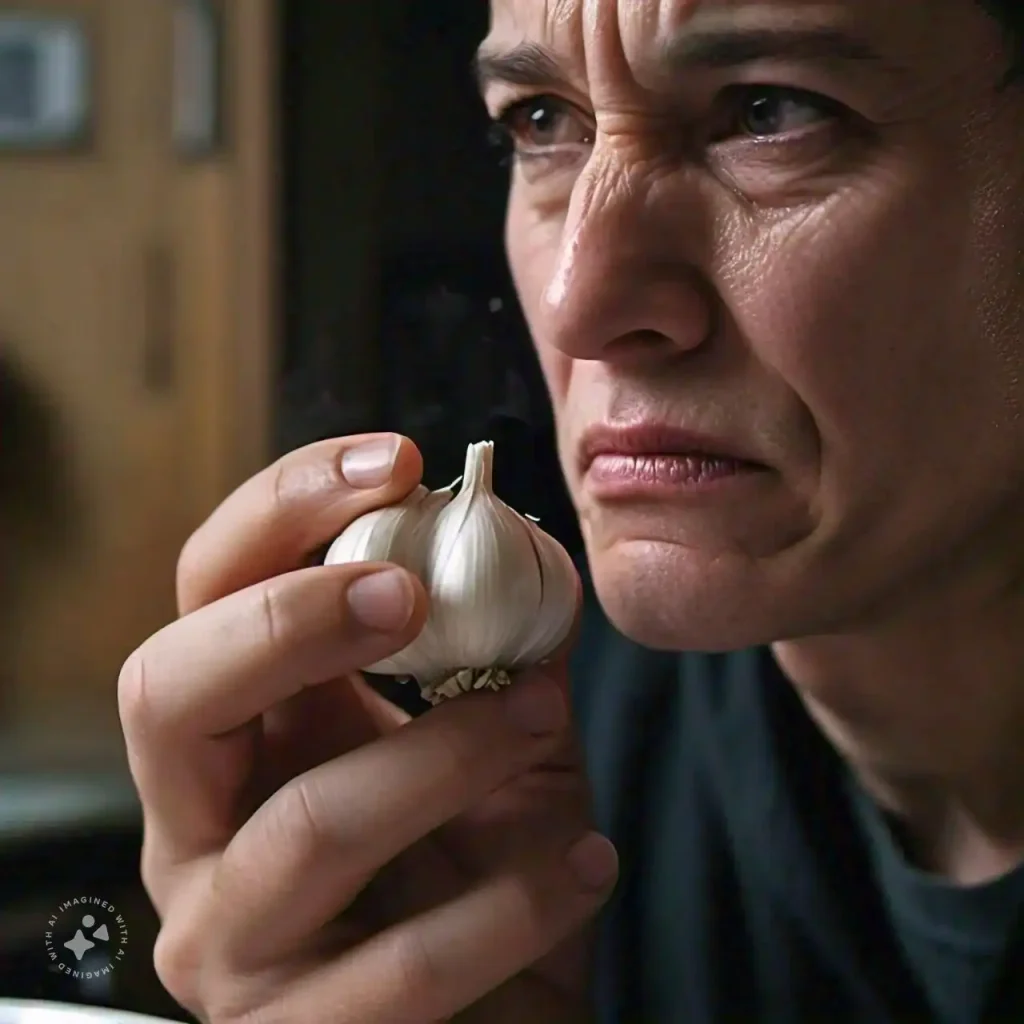
The Science Behind Garlic Breath
Garlic contains several sulfur compounds, and these are the main culprits behind its pungent smell. When you eat garlic, these compounds are released, and some of them are absorbed into your bloodstream. The most notorious of these compounds is allyl methyl sulfide (AMS). Unlike other substances that are broken down by your liver and eliminated from your body through urine, AMS is absorbed into your bloodstream and eventually expelled through your lungs, sweat, and even your skin.

This is why garlic breath can be so persistent; it’s not just in your mouth, but it’s literally coming from your insides! Every time you exhale, some of the AMS is released, which creates that characteristic garlic odour.
How Long Does Garlic Breath Last?
The duration of garlic breath can vary depending on how much garlic you’ve eaten and how your body processes it. For some people, garlic breath can last for just a few hours, while for others, it might stick around for a day or more. This is because AMS can linger in your system for a long time, and your body continues to release it as you breathe, sweat, or even talk.

Why Does Garlic Breath Smell So Strong?
The strength of garlic breath is due to the potency of the sulfur compounds in garlic. These compounds are incredibly strong-smelling on their own, but when they’re mixed with the natural bacteria in your mouth, they can become even more intense. The bacteria in your mouth break down food particles, and in doing so, they produce their own smelly compounds. When combined with the sulfur compounds from garlic, this can create a very strong and persistent odour.
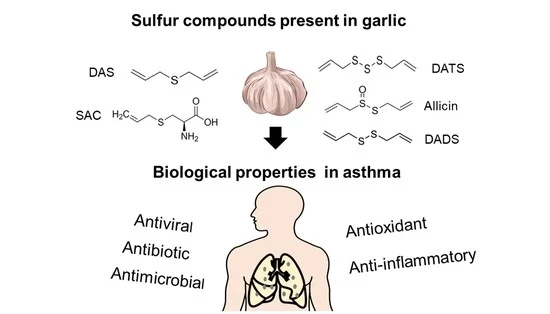
Garlic Breath and Your Health
Interestingly, while garlic breath might be socially embarrassing, garlic itself is actually very good for you. Garlic has been used for centuries as a natural remedy for a variety of health issues. It’s known to have anti-inflammatory, antibacterial, and antiviral properties, and it’s even believed to help lower blood pressure and reduce the risk of heart disease.
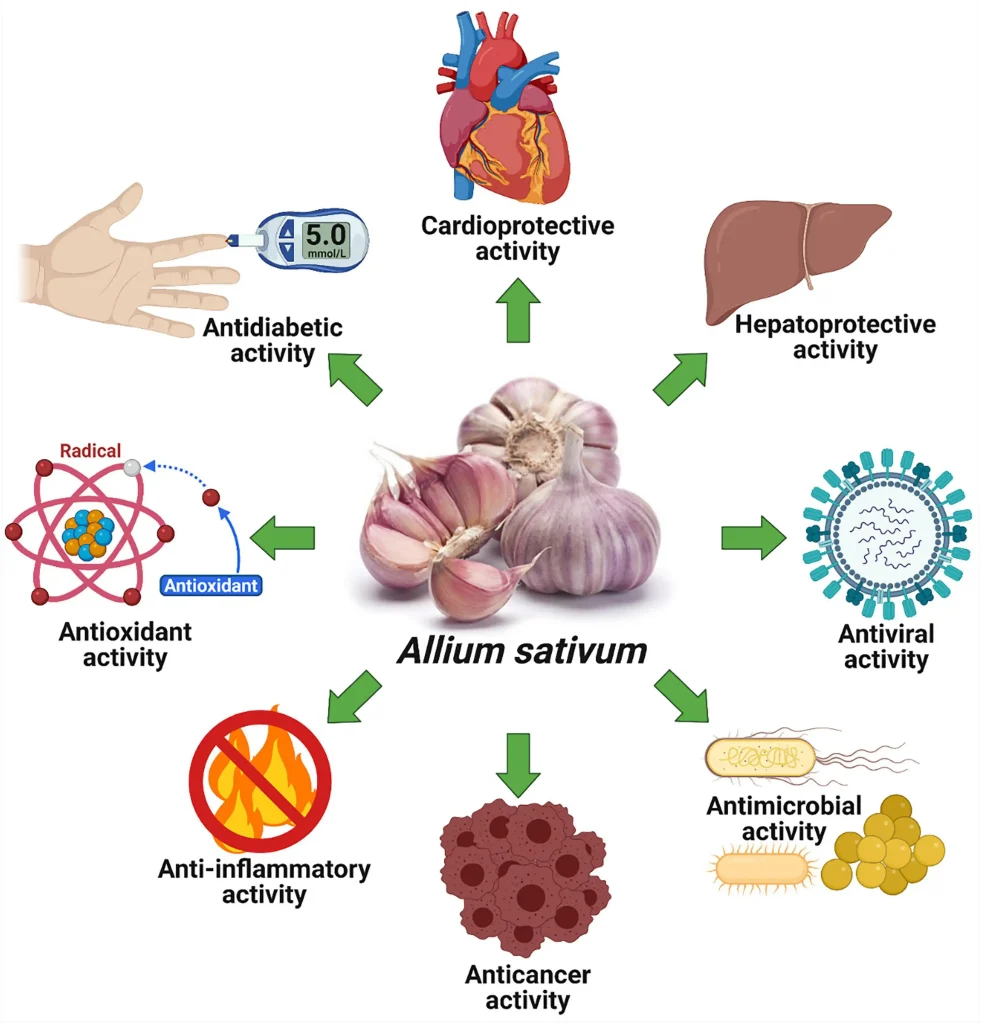
So, while garlic breath might be a bit unpleasant, the benefits of eating garlic can far outweigh the downside of having smelly breath for a few hours.
Tips to Reduce Garlic Breath
If you love garlic but don’t love the breath that comes with it, there are a few things you can do to reduce the smell:
- Eat Raw Apples or Lettuce: Studies have shown that eating raw apples or lettuce can help neutralise the odour of garlic. These foods contain natural compounds that react with the sulfur compounds in garlic, breaking them down and reducing their smell.

- Drink Milk: Milk is another natural remedy for garlic breath. The fat in milk can help absorb the sulfur compounds, and the water content helps wash away food particles that might be lingering in your mouth.

- Chew Parsley: Parsley is often used as a garnish, but it can also help freshen your breath. The chlorophyll in parsley acts as a natural deodoriser, neutralising the smell of garlic.
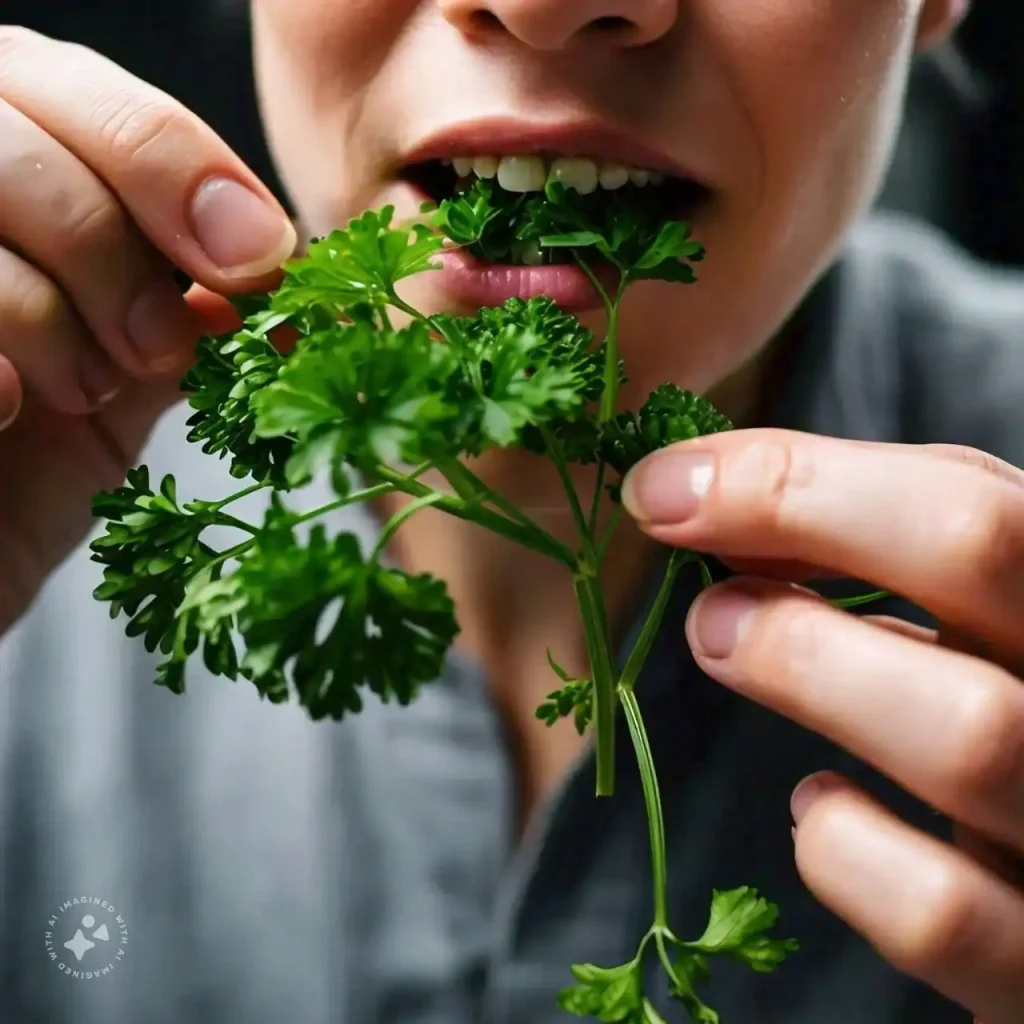
- Brush and Floss: Brushing and flossing your teeth after eating garlic can help remove food particles and bacteria from your mouth, which can reduce the smell. Don’t forget to brush your tongue as well, as it can harbour bacteria that contribute to bad breath.
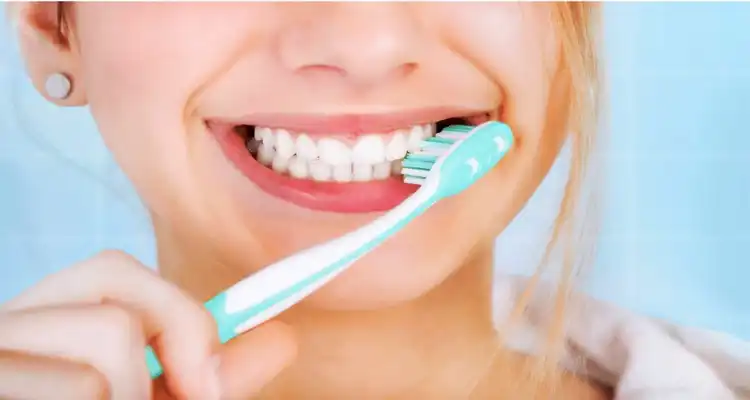
- Use Mouthwash: A strong mouthwash can help mask the smell of garlic, at least temporarily. Look for one that contains chlorine dioxide or zinc, as these ingredients can help neutralise sulfur compounds.
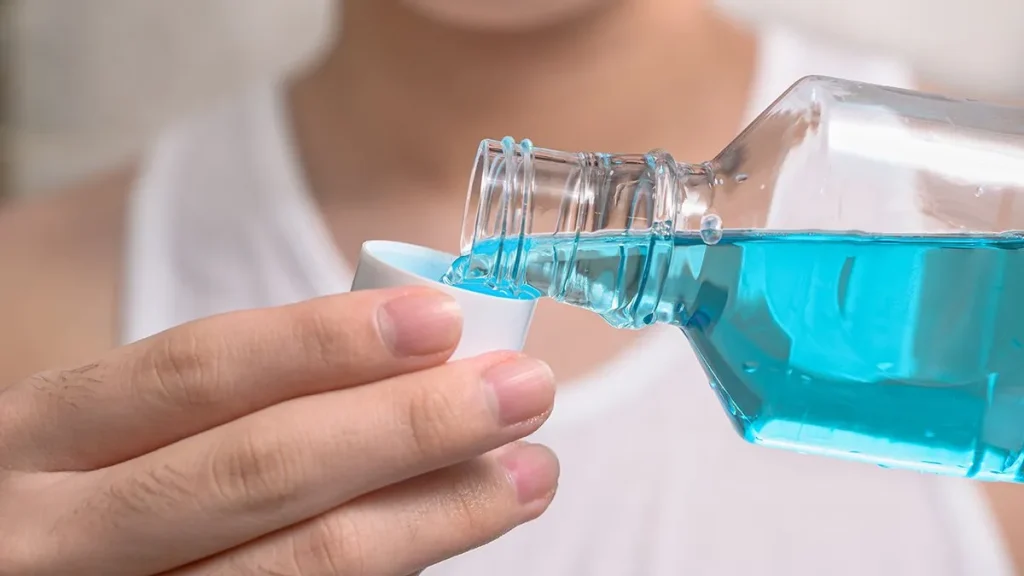
The Role of Digestive System in Garlic Breath
Another interesting aspect of garlic breath is how it’s connected to your digestive system. After you eat garlic, some of its compounds are broken down in your stomach, but AMS doesn’t get metabolised. Instead, it enters your bloodstream and eventually gets expelled through your lungs. This is why garlic breath can be so persistent; even after brushing your teeth, the smell can come back because it’s being released from your lungs.
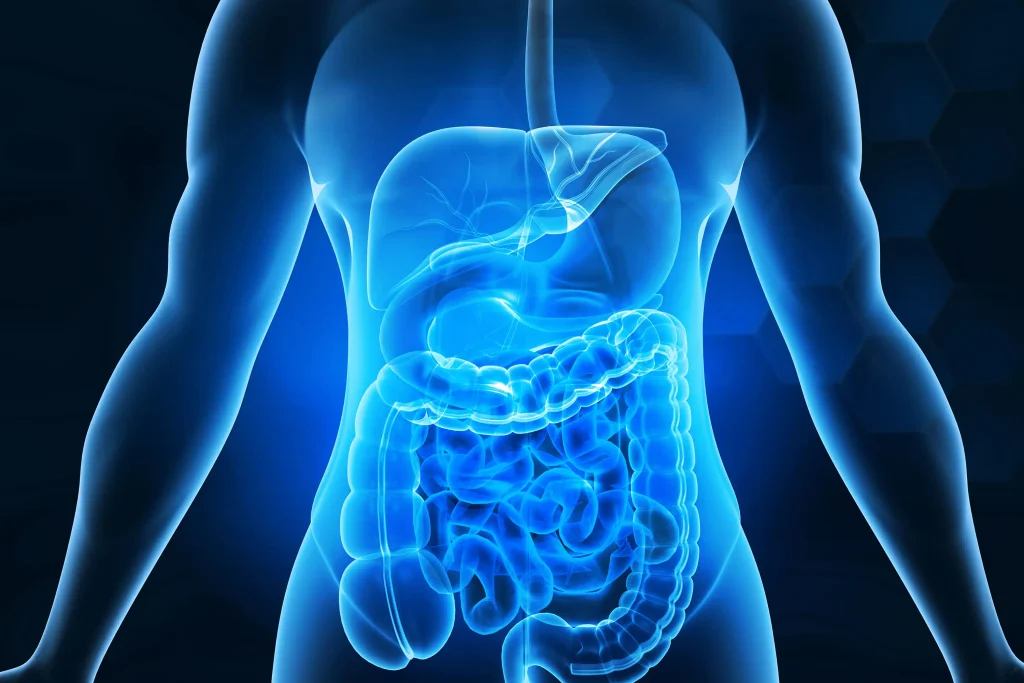
In some cases, people with digestive issues may experience more intense garlic breath because their bodies might not process garlic as efficiently. For example, people with acid reflux might find that garlic causes them more problems, as the sulfur compounds can linger in their system longer.
Garlic and Social Situations
Garlic breath can be particularly concerning in social situations, especially if you’re about to have a close conversation with someone. In some cultures, eating garlic before a social event is considered bad manners because of the strong smell it can cause.

However, in other cultures, garlic is celebrated for its flavour and health benefits, and people might not be as concerned about garlic breath. For instance, in countries like Italy and Korea, where garlic is a staple in many dishes, garlic breath is more common and less likely to be seen as a problem.

Can You Avoid Garlic Breath Altogether?
While it’s nearly impossible to avoid garlic breath entirely if you eat a lot of garlic, there are ways to minimise it. Eating garlic in moderation and combining it with foods that help neutralise its odour can reduce the intensity and duration of garlic breath. Additionally, maintaining good oral hygiene and drinking plenty of water can help flush out the sulfur compounds more quickly.
Conclusion
Garlic breath might be a small price to pay for enjoying the delicious flavour of garlic, but understanding why it happens can help you manage it better. The next time you indulge in a garlic-rich meal, try some of the tips mentioned here to keep your breath as fresh as possible. And remember, while garlic breath might be a bit unpleasant, the health benefits of garlic are well worth it!
For more interesting articles, please visit www.kidzherald.com





